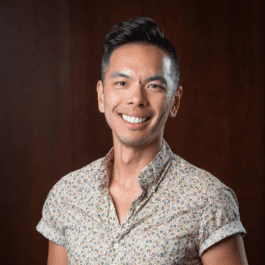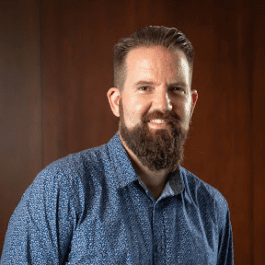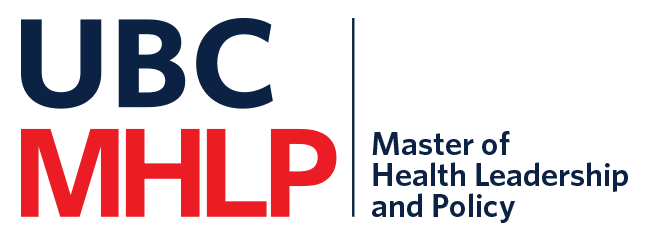Patient-Centred Care in Canada

While there is broad understanding about what patient-centred care looks like for interactions between frontline staff and patients, there is less understanding about what is needed to support patient-centred care from an organizational or system perspective.
Patient-centred care for leaders
At the organizational level, health-care managers and leaders play a crucial role in helping their staff move away from a task-focused approach to one where the client’s needs are the driving force behind all interactions and decisions. This could require designing new systems or policies, delivering education and training, advocating for new funding or other strategies.
That’s why there’s often a learning curve for health-care practitioners who are moving into leadership positions. They may know how to provide patient-centred care when working one-on-one with their patients, but are less clear on how to create the conditions for that to happen across teams, departments and facilities.
A professional master’s degree like the Master of Health Leadership and Policy can help practitioners better understand how to integrate patient-centred care throughout an organization. With an integrated curriculum focusing on health care (through courses taught by leading experts at UBC School of Nursing) and business and leadership (through courses taught by UBC Sauder School of Business), graduates gain the interdisciplinary knowledge and leadership skills needed to guide teams and support their staff to deliver care that puts patients first.
From one-to-one to one-to-many
Many health-care professionals choose the MHLP in Seniors Care or MHLP in Clinical Education because they are eager to advance from a frontline provider role to a leadership position where they can make a broader impact on patient care.
“When you are a leader in a [long-term care] residence, you are implementing policy and orders from above and you do not have very much – if any – influence on the policies themselves,” says Hazel Mamaril, a graduate of the MHLP in Seniors Care.
“I wanted to use my expertise to be part of the decision-making process and to help develop policies that would be best for the people in my care. And I knew having a master’s degree would give me the confidence and credentials to do that.”
To take just one example, earlier in her career while working as a bedside nurse in seniors’ residences, Hazel focused on helping her patients avoid falls. When she moved into a leadership position as a Regional Director of Wellness, she no longer had that same one-to-one relationship with her patients. Yet she was able to have a greater impact on patient-centred care across multiple facilities. In her new position, she reviewed data from the multiple residences and then developed and implemented organizational policies that would help her team prevent falls.
“I gained the knowledge and skills to confidently take on positions I know I am capable of and where I can make a difference,” she says.
“I now have greater flexibility to create a positive workplace culture for staff and can introduce changes that ultimately benefit the seniors in our residences.”
It was a similar experience for Agata Stanielewicz, who worked as a social worker within a hospital setting and had been frustrated by her lack of influence to change policies that would better support her clients.
After completing the MHLP in Clinical Education, Agata was hired as a Clinical Practice Leader at Fraser Health Authority, with responsibilities that include supervising a team of social workers. A recent project saw her start a patient experience project to make sure person-centred care is the focus of all interactions within the emergency department.
She’s also using the skills she developed in the health care and business courses to create a workplace culture where her team feels “comfortable sharing their thoughts and concerns,” which she sees as an essential element that must be in place to prioritize patient-centred care.
Learning to lead in patient-centred care
Patient-centred care happens in those moments of connection when health-care providers have the time and space to listen, establish trust, communicate and answer questions so that the individual is empowered to make the health decisions that are best for them.
Health-care leaders also need to learn how to create those moments of connection with their staff to support them in delivering patient-centred care. And it’s more than moments – there are many structural changes that need to be put in place to support both patient-centred care and a healthy workplace culture.
That requires a holistic understanding of the context in which care is delivered, as well as determinants that contribute to health and well-being.
“As individuals transition into leadership roles, their perspective must broaden to take into account the complex structural dynamics of care,” says Alison Phinney, Professor of the MHLP in Seniors Care.
“It’s about appreciating the interconnections that shape and influence the system as a whole, being able to integrate knowledge from other disciplines and identifying where you can make a difference.”
The MHLP empowers its graduates to be at the leading edge of that shift. As Dr. Cheryl Segaric, Director of the MHLP in Clinical Education says, the program pushes “students to think critically, to ask the hard questions and to look at the full picture. That’s how you become a leader capable of imagining and implementing the changes needed to move the system in a new direction.”
Seniors Care
Move your career forward as a health-care specialist dedicated to improving patient outcomes and fostering the well-being of seniors.
Read MoreClinical Education
Develop the educational strategies and leadership skills to create caring, collaborative clinical environments.
Read MoreApplication Deadlines
The online application portal for the January 2025 has closed.
Get ready to apply!
Admissions for the 2026 intake will open on January 1, 2025.
How to ApplyJoin us for an
Info Session
Sign up for our latest online information sessions and discover what our programs have to offer.
Sign Up NowAssess your Eligibility
Determine if your professional experience and academic background make you a fit for your desired program.
Start AssessmentApplicant Guide
Navigate the application process with ease!
Sign up to receive tailored instructions and a detailed guide directly to your email.
Sign upFeatured Alumni

Ellison Chung
An emergency nurse clinician and nursing educator at BCIT, Ellison Chung chose the MHLP in Clinical Education to continue growing his skills as an educator and leader. He’s now working as a clinical education consultant with the Provincial Health Services Authority.
Featured Alumni

Justin Krzanowski
Justin Krzanowski is integrating the leadership and health-care knowledge he acquired over the course of his MHLP in Seniors Care to lead a team tasked with developing and implementing discharge policies and procedures from the acute care setting.


